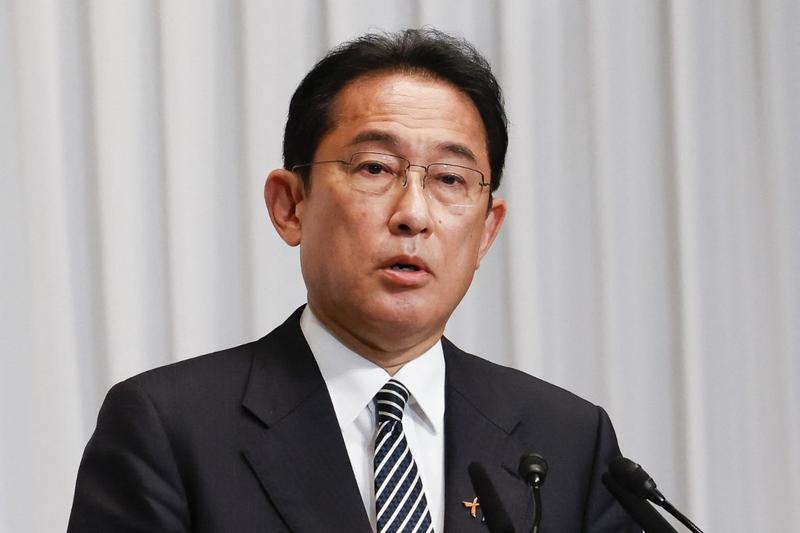 Japan's Prime Minister and ruling Liberal Democratic Party (LDP) leader Fumio Kishida attends a news conference at the party's headquarters in Tokyo on No 1, 2021. (RODRIGO REYES MARIN / POOL / AFP)
Japan's Prime Minister and ruling Liberal Democratic Party (LDP) leader Fumio Kishida attends a news conference at the party's headquarters in Tokyo on No 1, 2021. (RODRIGO REYES MARIN / POOL / AFP)
Prime Minister Fumio Kishida’s stronger-than-expected election victory smooths the path for a stimulus package that signals whether he’s a big spender or a budget balancer.
Cash handouts and a relaunch of domestic travel subsidies will be considered for inclusion when the package is put together in mid-November, Kishida said Monday. The premier has yet to put a figure on the amount of spending, but has said it will be trillions of yen.
The tricky part will be unraveling how much new money will actually be set aside to fund the spending, the key signal for how aggressive Kishida really is on fiscal support for the economy.
With a stack of unused budget funds still left over from the first year of the pandemic, the prime minister could yet launch a big ticket package without spending any new money at all.
“This was a sweeping victory” for Kishida’s ruling Liberal Democratic Party, Chotaro Morita, chief rates strategist at SMBC Nikko Securities, wrote in a report Monday, suggesting the premier may be more frugal than his predecessors. “Now the chances are high that the economic package won’t be dramatic pork-barrel spending but will reflect Kishida’s thinking more.”
ALSO READ: Japan's Kishida to forge ahead with economy plans after win
Cash handouts are likely to be the centerpiece of the measures.
Komeito, the LDP’s coalition partner, pledged in the election campaign to give 100,000 yen ($875) for each household member aged 18 or below. Kishida said Monday that he will consider handouts to support non-regular workers and families with children.
Getting the measures right is a key concern for Fumio Kishida to ensure voters stay on his side before another election next summer
Getting the measures right is a key concern for Kishida to ensure voters stay on his side before another election next summer. Kishida needs to win that poll too to shore up his administration for the longer term.
The consensus among economists surveyed by Bloomberg before Sunday’s vote was for measures worth around 30 trillion yen, and more if Kishida fared badly. That amount is equivalent to more than 5 percent of the economy’s size.
The actual fresh spending Kishida calls upon could be far smaller because of the unused stimulus of about 30.8 trillion yen. In the past the ruling party has used leftover funds to help inflate the size of economic measures, though that’s no guarantee Kishida will do the same.
What Bloomberg economics says...
“We expect Kishida to compile an extra budget worth 12 trillion yen to fund a package with a headline figure in line with his pre-election pledge of tens of trillion of yen,” economist Yuki Masujima said.
Still, if he does include the money, he could roll out stimulus steps without having to issue any new bonds — typically the measure by which economists assess the punching power of a package.
READ MORE: Kishida's test in ties with China
That approach would make sense if Kishida is looking to keep a lid on actual outlays given Japan’s huge debt pile. The International Monetary Fund forecast Japan’s ratio of public debt to its economy will reach 256.9 percent this year, the highest among developed economies.
Conversely, Kishida could choose to issue more bonds if he wants to show his aggressiveness on spending.
“We would not expect this fiscal package to be a game changer for next year’s growth,” Masamichi Adachi and Go Kurihara, economists at UBS Securities, wrote in a report. “However, if Kishida can succeed in delivering what the public wishes, that could increase the chance of victory in the upper house election in July next year.”


